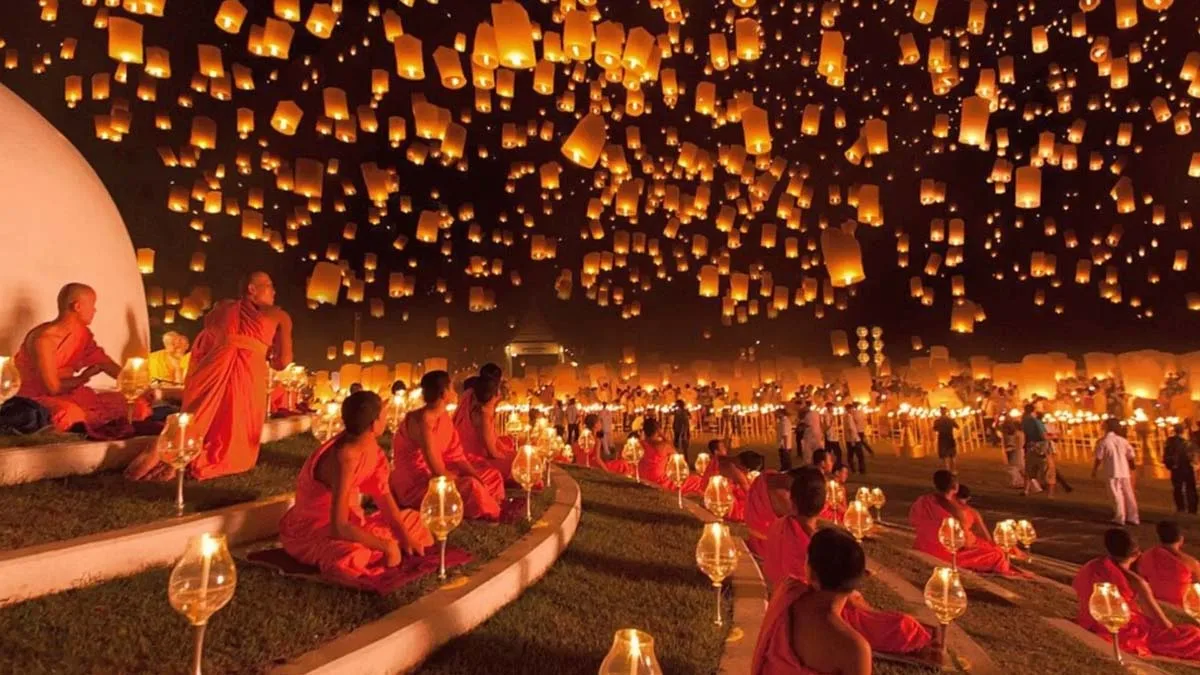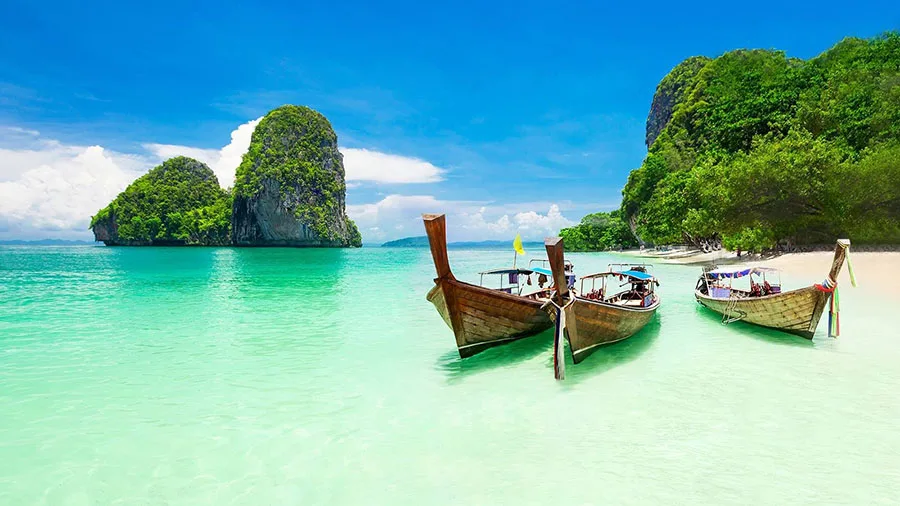Why Visit Thailand for Its Festivals?
Thailand isn’t just beaches and temples — it’s a year-long party of colors, smiles, and cultural surprises. Almost every month brings something new: water fights in April, lanterns floating in November skies, buffalo races, vegetarian rituals, or candle processions.
Whether you’re planning your trip or just curious about Thai traditions, this month-by-month festival calendar helps you see what’s happening, when, and where — and even how to join the fun like a local.
Thailand Festivals Month by Month
January – A Fresh Start with Traditions and Faith
Main Festivals:
New Year Celebrations (Nationwide)
Thailand greets the Western New Year with fireworks over Bangkok’s Chao Phraya River, beach parties in Phuket, and countdowns in Chiang Mai. The air is cool, spirits are high, and it’s a great time for temple merit-making on January 1st.
Funny fact: Thais actually celebrate three New Years — international, Chinese, and Thai!- Chiang Mai Flower Festival (Chiang Mai)
Every February’s cousin, this late-January festival bursts with floral floats, dancers, and the scent of blooming bougainvilleas. The streets of Chiang Mai turn into an open-air botanical garden celebrating the region’s natural beauty.
Cultural significance: The festival honors the end of the cool season and the region’s floral pride, especially the yellow and white chrysanthemums and the local Damask rose.
Travel tip: Book early! Hotels fill quickly in Chiang Mai during this period. Bring sunscreen and a hat — shade is as rare as a quiet tuk-tuk.
Funny fact: Locals say if a flower lands on you during the parade, it means good luck in love. - Bo Sang Umbrella Festival (Chiang Mai)
Held in the small craft village of Bo Sang, this festival celebrates handmade bamboo umbrellas painted in colorful floral designs. There are parades, music, and contests for the most beautiful umbrella.
How to get there: Bo Sang is just 9 km east of Chiang Mai city — grab a red songthaew taxi.
Why it’s special: It’s an explosion of colors and local craftsmanship, perfect for photographers.
A kaleidoscope of handmade umbrellas, lanterns, and smiling artisans. This craft fair celebrates traditional paper umbrellas — painted in vivid colors and patterns.
Cultural note: The craft originated from local monks who brought the umbrella-making technique from Burma centuries ago.
Getting there: Just a 30-minute ride from Chiang Mai’s old city.
Funny fact: Umbrella contests sometimes include “fastest painter” challenges — where artists finish full-color designs in under five minutes!

As the cool northern winds slowly mellow, Thailand slides gracefully into February. The festive buzz doesn’t fade—it transforms. Flowers bloom, lanterns glow, and love fills the air, both from temples and travelers alike.
February – Love and Lanterns
Main Festivals:
Chinese New Year (Bangkok, Phuket, Chiang Mai)
Thailand’s Chinese communities go all out — red lanterns, dragon dances, and food stalls fill Yaowarat Road in Bangkok. The exact date changes yearly (around early February).
Lesser-known fact: Many Thais of Chinese descent use this time to pay respect to ancestors and clean their homes for luck.Makha Bucha Day (Nationwide)
Held on the full moon of the third lunar month, this Buddhist holiday honors the spontaneous gathering of 1,250 enlightened monks around the Buddha. Temples across Thailand glow with candlelight processions.
Cultural note: It’s one of Thailand’s most sacred days — expect quiet reverence, no alcohol, and respectful dress codes.
Where to go: Visit Wat Phra Kaew in Bangkok or Wat Doi Suthep in Chiang Mai for breathtaking ceremonies.
Travel tip: Carry a sarong or scarf to cover shoulders; it’s a simple way to blend in respectfully.
Funny fact: Locals sometimes joke that Magha Puja is the “monks’ day off from worldly chaos.”
A Buddhist holiday commemorating the spontaneous gathering of 1,250 monks who came to hear Buddha’s teachings. It usually falls in February’s full moon.
How to join: Visit a temple at night to see candlelit processions called Wian Thian.
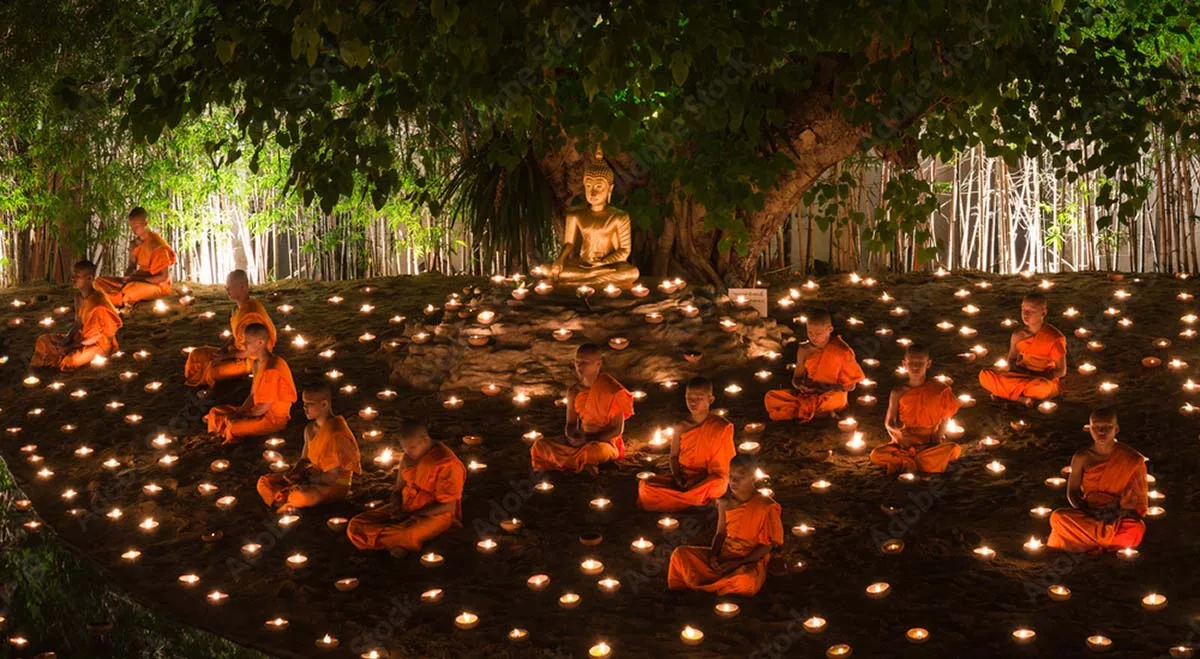
With the floral beauty of February fading, March arrives warmer and brighter. The country begins to prepare for summer’s energy, where spiritual calm and rising heat dance side by side.
March – A Month of Merit and Music
Main Festivals:
Chiang Mai Flower Festival
Every February or early March, Chiang Mai transforms into a living garden. Floats covered in orchids, parades, and flower markets attract thousands.
Funny fact: The floats are so fragrant that bees sometimes join the parade too!Pattaya International Music Festival
One of Asia’s biggest beach music events, bringing Thai and international artists to Pattaya Beach.
Tip: Book accommodation early — it’s packed!- National Elephant Day (March 13, Nationwide)
Thailand’s gentle giants get their own national celebration. Sanctuaries hold bathing rituals, fruit buffets, and awareness campaigns.
Cultural note: Elephants are Thailand’s national symbol, representing strength and wisdom.
Best places: Chiang Mai’s Elephant Nature Park, Surin, or Ayutthaya Historical Park (yes, even the statues seem to join the mood).
Travel tip: Never ride elephants; support ethical sanctuaries instead.
Funny fact: Elephants have “best friends” — handlers say they can recognize them even years later.
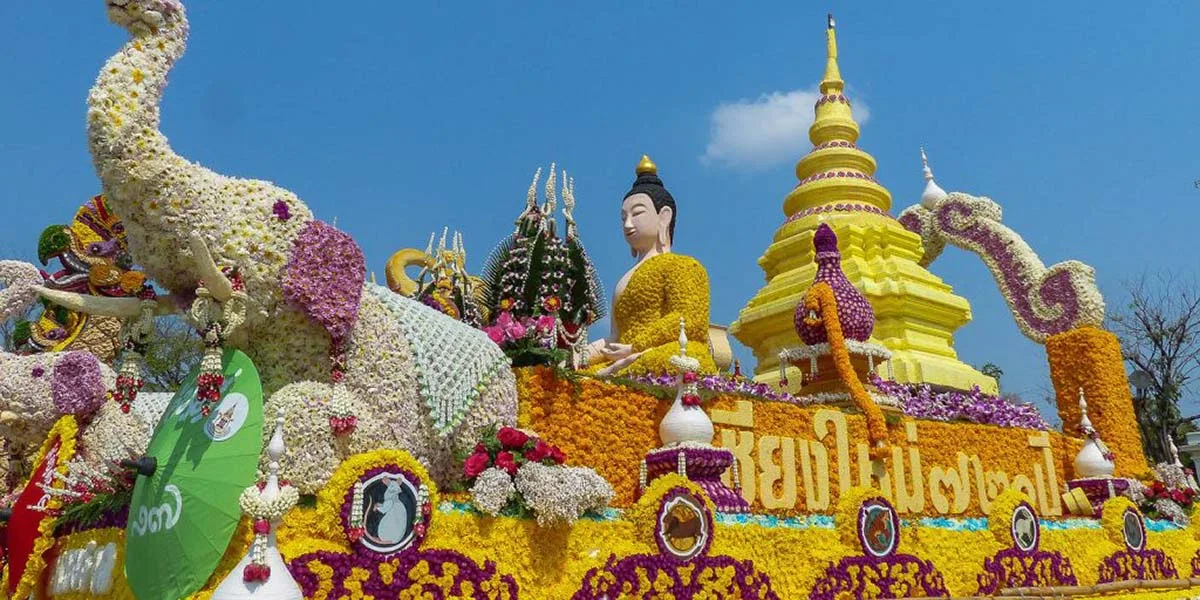
The gentle warmth of March quickly turns into April’s full blaze. But in Thailand, heat means happiness—because Songkran is just around the corner, turning the whole country into one joyful, watery playground.
April – Songkran: The World’s Largest Water Fight
Main Festival:
Songkran Festival (Nationwide) – April 13–15
The Thai New Year — where the whole country turns into a water fight. Buckets, water guns, and blessings blend into one big splash of happiness.
Cultural meaning: The water symbolizes purification — washing away bad luck and welcoming a fresh start.
Travel tip: Protect your phone with a waterproof pouch, and wear quick-dry clothes.
Funny fact: In some villages, grandmas still sneak up on teens with flour paste ambushes — “for blessings,” of course.
Where to go: Chiang Mai for cultural beauty, Bangkok for chaos, or Ayutthaya for a blend of both.
Funny fact: Even elephants join the water fights in some towns!
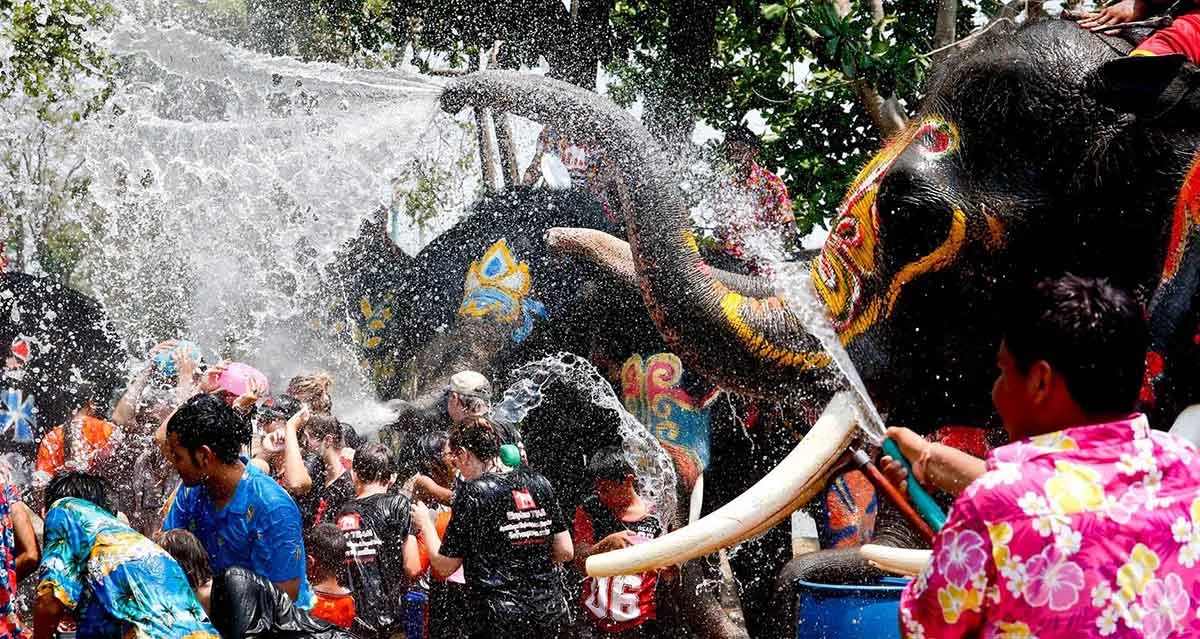
As April’s water fights dry up, May brings softer skies and the first teasing drops of rain. It’s a quieter, more local month—perfect for those who love festivals off the tourist radar.
May – Sacred Ceremonies and City Spirits
Main Festivals:
Royal Ploughing Ceremony (Bangkok)
This ancient Brahmin ceremony marks the rice-planting season, held near Sanam Luang beside the Grand Palace.
Held at Sanam Luang near the Grand Palace, this ancient Brahmin ritual predicts the year’s harvest. Sacred oxen choose between rice, water, or grass — symbolizing agricultural fortune.
Cultural note: The event dates back 700 years, blending Hindu and Buddhist beliefs.
Travel tip: Arrive early; dress modestly as members of the Royal Family may attend.
Funny fact: People scramble to collect grains from the ploughing field — believed to bring good harvest luck!
Lesser-known fact: The bulls’ choice of food and drink predicts the nation’s harvest luck.Visakha Bucha Day (Nationwide)
Commemorating Buddha’s birth, enlightenment, and death — all on the same date. Thousands of Thais join candle processions at temples across the country.
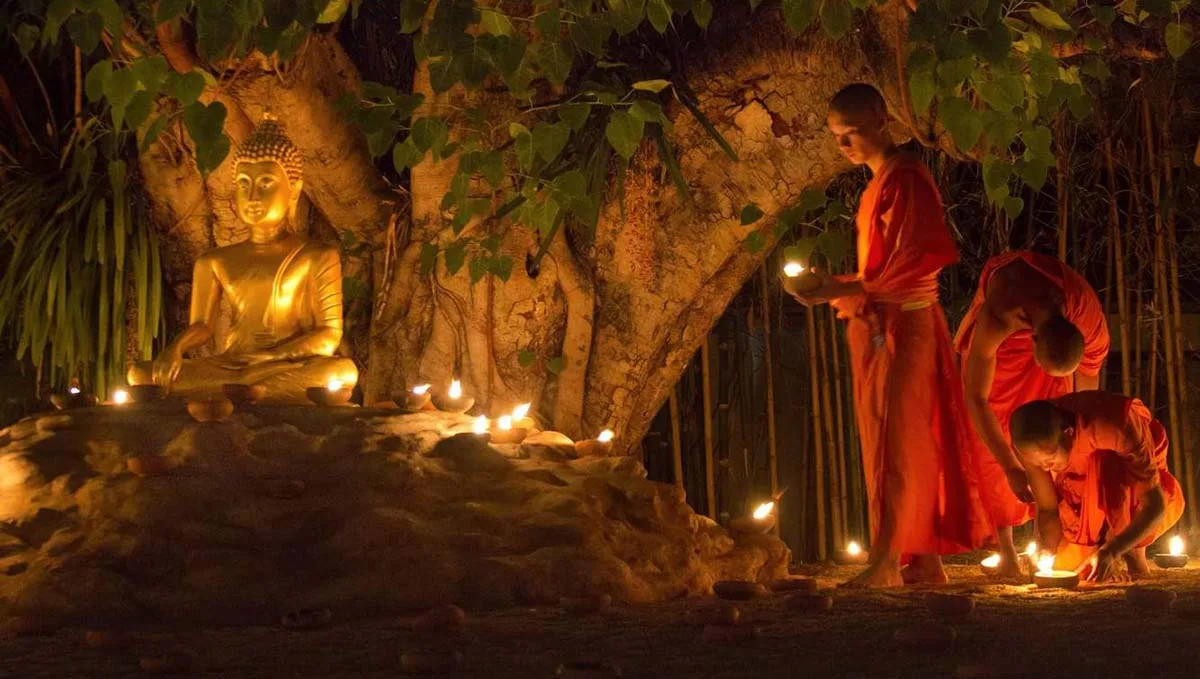
When June arrives, the monsoon hum begins. The rains paint Thailand in its richest greens, and while the big festivals rest, the land itself starts to celebrate—with life bursting from every rice field.
June – Rain, Rockets, and Rice
Main Festival:
Bun Bang Fai Rocket Festival (Yasothon, Isan)
Homemade rockets soar into the sky to ask the gods for rain. The event includes loud music, dancing, and… yes, a lot of rice whisky.
Funny fact: The rockets sometimes misfire, but people still cheer — it’s all about the fun!- Phi Ta Khon (Dan Sai, Loei Province)
Thailand’s wildest ghost festival — villagers wear colorful masks and dance through town to invite spirits to join the fun.
Cultural note: Blends Buddhist and animist beliefs; celebrates a legendary prince whose return from the dead shocked everyone so much they danced in joy.
Travel tip: Book accommodations early — Loei fills up fast.
Funny fact: Costumes are made from rice husks and coconut husks; each mask is unique and slightly mischievous.
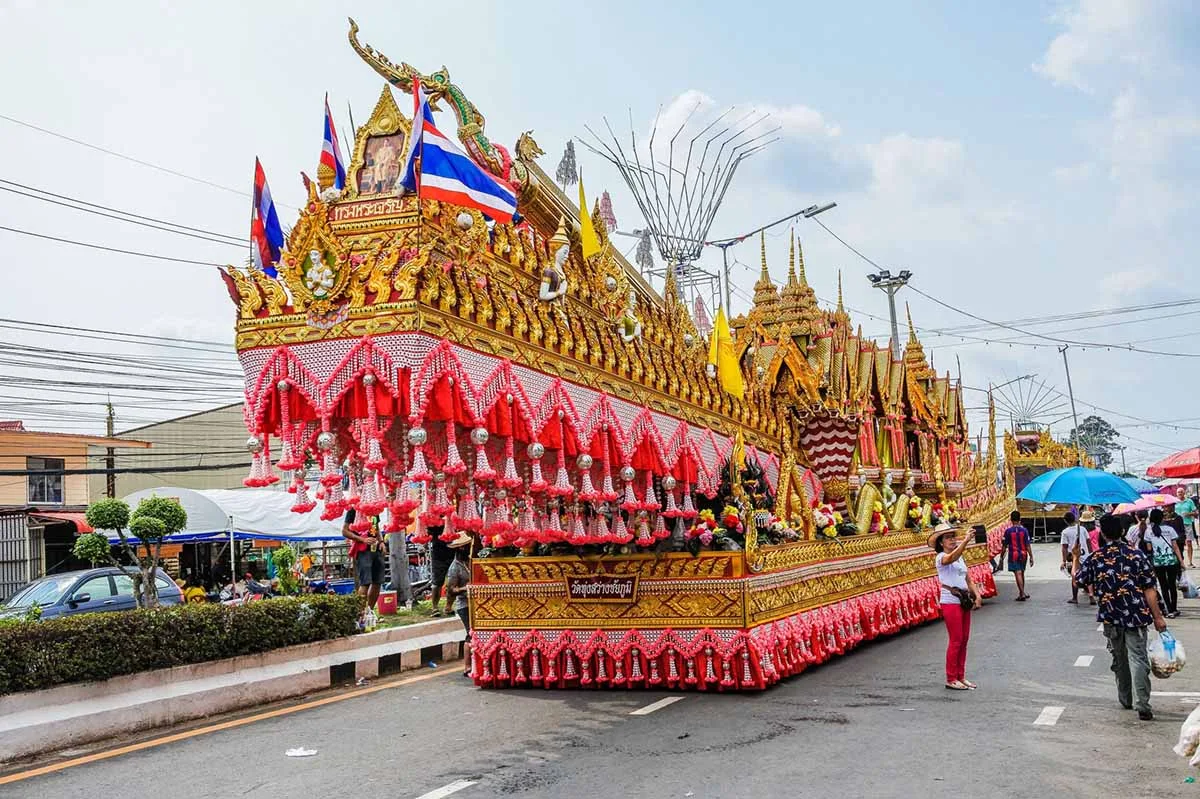
July deepens the rhythm of the rainy season. Clouds roll in, temples glow softly through the mist, and spiritual gatherings fill the calendar. Fewer crowds mean more authentic encounters.
July – Buddhist Lent Begins
Main Festivals:
Asanha Bucha & Khao Phansa (Nationwide)
These two consecutive holy days mark Buddha’s first sermon and the start of monks’ three-month retreat.Ubon Ratchathani Candle Festival (Ubon Ratchathani)
Massive carved candles parade through the city marking the start of Buddhist Lent (Khao Phansa).
Cultural note: Monks retreat to monasteries for three months of study and meditation.
Travel tip: Stay for night illuminations — they’re magical.
Funny fact: Some candles are taller than tuk-tuks — and take weeks to carve.
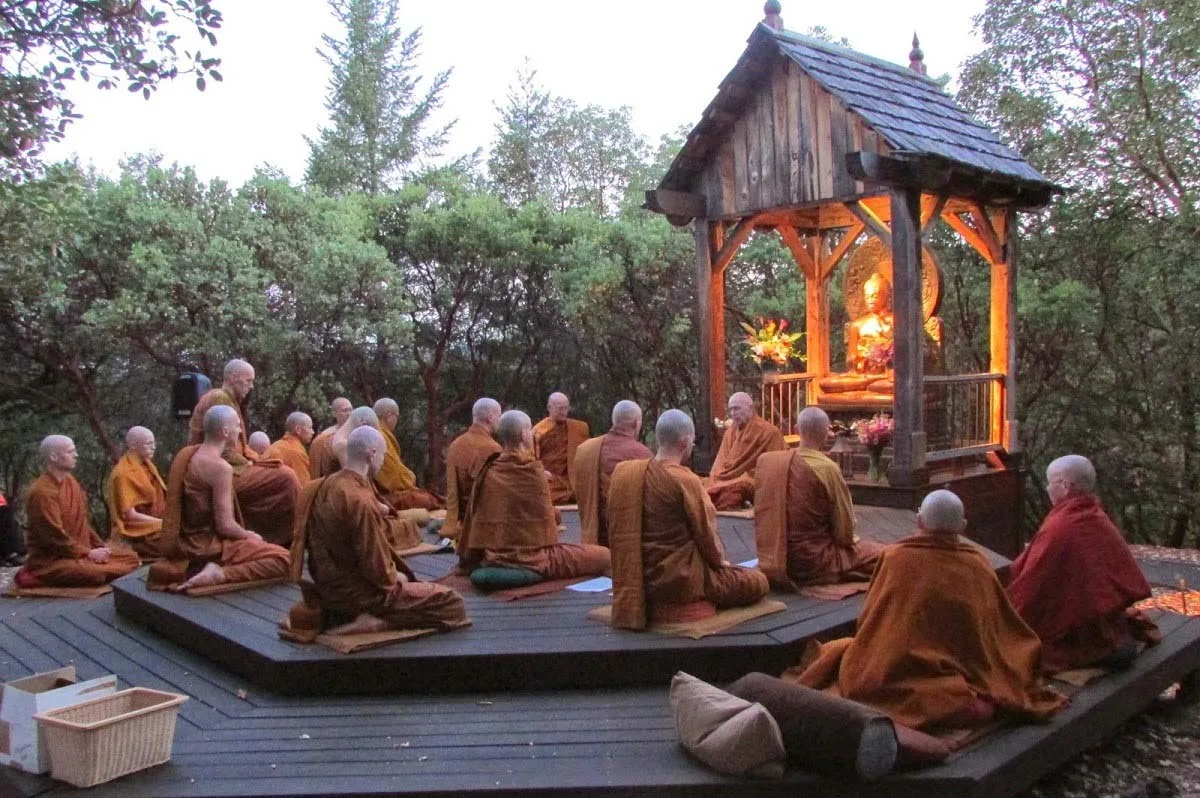
As the season ripens, August brings a tender mix of patriotism and family warmth. The rains may linger, but so do smiles—and Mother’s Day brings out the nation’s softer side.
August – Culture and the Queen’s Birthday
Main Festivals:
Mother’s Day (Nationwide) – August 12
Also celebrated as Mother’s Day. Thai flags and blue ribbons fill streets, and temples host charity events.
Cultural note: A heartfelt day where families gather to honor mothers with jasmine flowers.
Travel tip: Expect some closures of government offices but beautiful night illuminations.
Funny fact: In some villages, you might see men cooking entire feasts for their mothers-in-law — brave souls indeed.
Tip: Expect special cultural performances and free museum entries in Bangkok.
The air begins to shift again in September. It’s still green and wet, but you can feel change coming. Fields are ripe, buffaloes race, and laughter echoes across muddy tracks and temples alike.
October – Vegetarian and Very Vibrant
Main Festival:
Phuket Vegetarian Festival
A spiritual purification event where participants follow a strict vegan diet and perform extreme rituals to cleanse the soul.
Important: The processions are not for the faint-hearted — but they’re deeply symbolic and powerful.
Vegetarian Festival (Phuket, Krabi, and Southern Thailand)
Nine days of spiritual cleansing, where devotees avoid meat, wear white, and perform rituals to purify body and soul.
Cultural note: Originates from Chinese Taoist traditions celebrating purity and devotion.
Travel tip: In Phuket, avoid crowds if you’re faint-hearted — some processions include extreme piercings as acts of faith.
Funny fact: Even spicy sauces go vegetarian — chili “fish sauce” with zero fish!
Funny fact: Despite its name, it’s not only about food — though Phuket’s vegan street snacks are legendary!Awk Phansa (Nationwide)
End of Buddhist Lent — monks leave monasteries and people release small boats made of banana leaves.
Cultural note: Symbolizes letting go of negativity and making merit.Naga Fireball Festival (Nong Khai)
Mysterious fireballs rise from the Mekong River — locals believe they’re from the mythical Naga serpent.
Travel tip: Book hotels early; this one’s legendary.
Lesser-known fact: Scientists call it swamp gas, locals call it magic — both watch in awe.
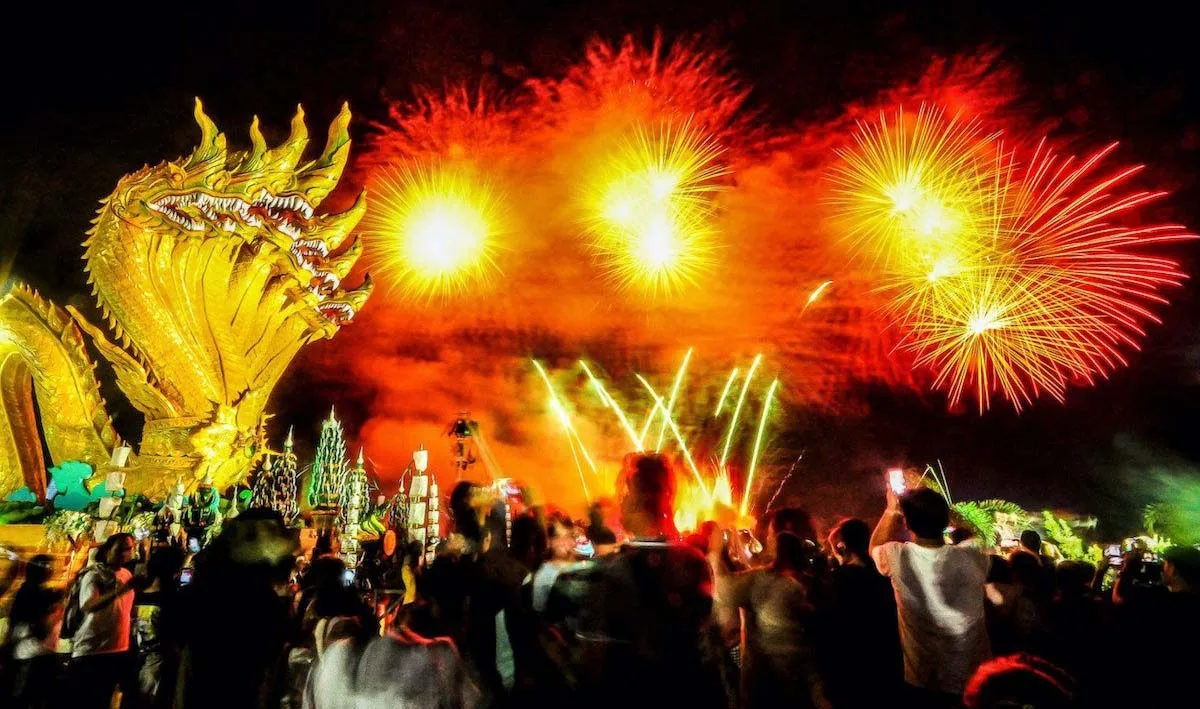
By October, the monsoon begins to loosen its hold. The air turns crisp, and the country prepares for light, renewal, and one of Thailand’s most mysterious natural wonders.
November – Magic in the Skies
Main Festivals:
Loy Krathong (Nationwide)
On the full moon, Thais float decorated baskets (krathong) on rivers to thank the water goddess.
The most romantic Thai festival — floating lotus boats carrying candles, incense, and wishes drift along rivers and lakes.
Cultural note: Honors the water goddess Phra Mae Kongkha.
Best spots: Sukhothai, Chiang Mai, Ayutthaya, and Bangkok.
Travel tip: Buy eco-friendly krathongs (banana leaves, not styrofoam).
Funny fact: Couples release krathongs together to “test their love” — if they float apart, maybe it’s a sign!Yi Peng Lantern Festival (Chiang Mai)
Thousands of paper lanterns rise into the sky — a breathtaking spectacle of light and calm.
Tip: Book tickets early for safe, eco-certified release areas.
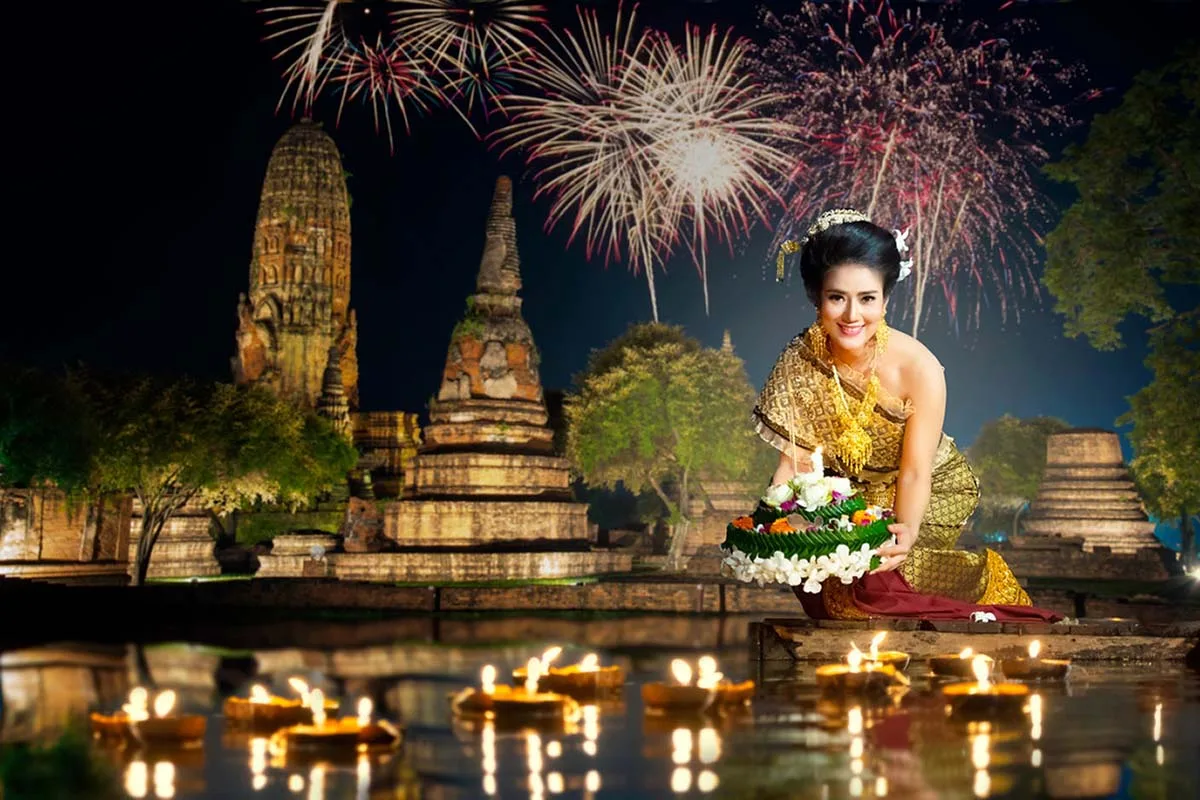
When November arrives, the skies open into perfect blue. Lanterns, lights, and floating krathongs shimmer across rivers and cities—Thailand at its most magical.
December – Lights, Love, and Long Weekends
Main Festivals:
Father’s Day (Nationwide) – December 5
Honoring the late King Bhumibol Adulyadej — streets are adorned in yellow, and temples host merit-making ceremonies.
Cultural note: Deep respect and gratitude fill the air; it’s both patriotic and emotional.New Year’s Eve (Nationwide)
Fireworks, concerts, and countdowns everywhere — from Bangkok’s ICONSIAM to beaches in Krabi and Koh Samui.
Funny fact: Bangkok locals love releasing balloons or sky lanterns — despite official bans in some areas.
Travel tip: Book transport early and secure accommodation weeks ahead.
Funny fact: In Chiang Mai, people release sky lanterns at midnight — locals call it the “brightest hangover of the year.”

December closes the year on a high note—literally, with fireworks across beaches and mountains. Cool breezes return, and the cycle of joy, devotion, and light begins again.
How to Use This Calendar
Use this calendar to plan your trip, time your visit with Thailand’s most iconic celebrations, or explore smaller local festivals along the way.
Also check our related guides:
Funny Fact:
Some Thais joke that “Thailand doesn’t have 12 months — it has 12 festivals!” And they’re not wrong.
Lesser-Known Fact:
Many local temple fairs (ngan wat) aren’t listed on calendars but are among the most authentic experiences you can have — ask locals anywhere you go.
Year-Round Magic: Festivals That Define Thailand
No matter when you visit, Thailand’s festivals paint the calendar with color, sound, and soul. From candle-lit temple nights to chaotic water fights, every month offers a new reason to smile — and usually a good excuse to eat something delicious.
What makes it so special isn’t just the fireworks or parades, but how every celebration feels shared. Whether you’re lighting a lantern in Chiang Mai, dancing through rain in Yasothon, or watching buffaloes race through mud in Chonburi — you’re not just observing Thailand’s culture, you’re living it.
And that’s the secret: Thailand doesn’t celebrate for tourists. It celebrates because joy is part of its heartbeat.
So, whatever month you choose, the country will welcome you with warmth, laughter, and a calendar full of unforgettable moments.
Thailand Festivals Calendar FAQ
The most famous is Songkran, the Thai New Year celebration in mid-April. Streets turn into friendly water-fights from Chiang Mai to Phuket. It’s a mix of joy, tradition, and pure chaos—just remember to waterproof your phone!
If you want cool weather and many celebrations, come between November and February. You’ll catch Loy Krathong, Yi Peng, Chinese New Year, and dozens of local temple fairs—without melting in the heat.
Almost all are free and open to everyone. Only some special events, such as cultural performances or private dinners, require tickets. Thai people love to welcome guests—just be respectful with dress and behavior at temple areas.
You’ll find beautiful river scenes everywhere, but Chiang Mai is the most iconic spot. Thousands of lanterns rise into the night sky during Yi Peng, the northern version of Loy Krathong. Bangkok and Sukhothai are also stunning.
Light, breathable clothes, sandals, sunscreen, and a waterproof pouch for Songkran are must-haves. For temple festivals, bring a sarong or scarf to cover shoulders and knees. And don’t forget your smile—locals appreciate friendliness above all.
Yes! From the Buffalo Racing in Chonburi to Rocket Festivals in Isan and Vegetarian Festival in Phuket, every region has its own rhythm. That’s what makes Thailand’s calendar so exciting—you can celebrate all year long.
What’s Your Favorite Thai Festival?
Have you joined Songkran in Chiang Mai or seen the lanterns rise in Yi Peng?
Share your story in the comments below — your experience might inspire someone’s next adventure!
